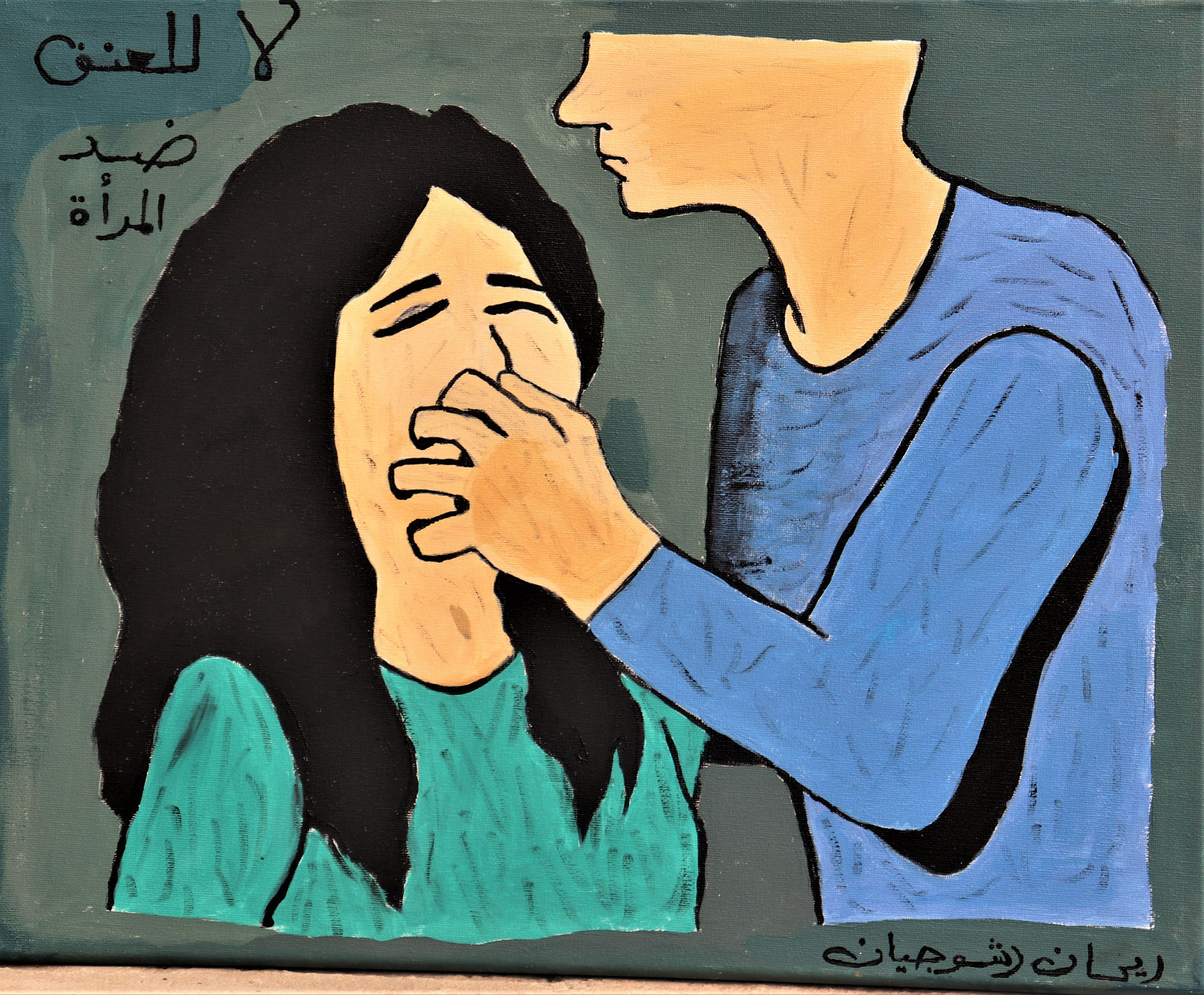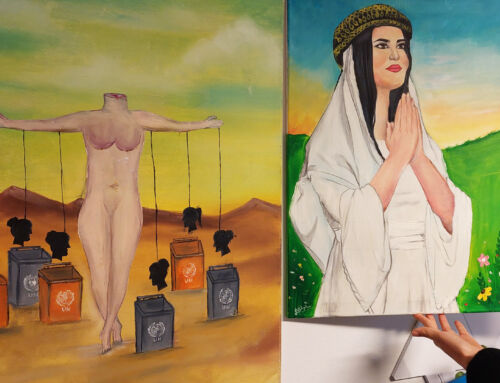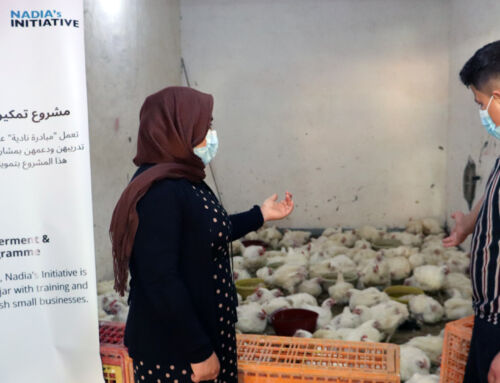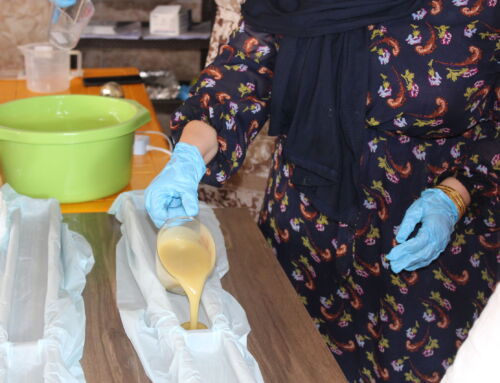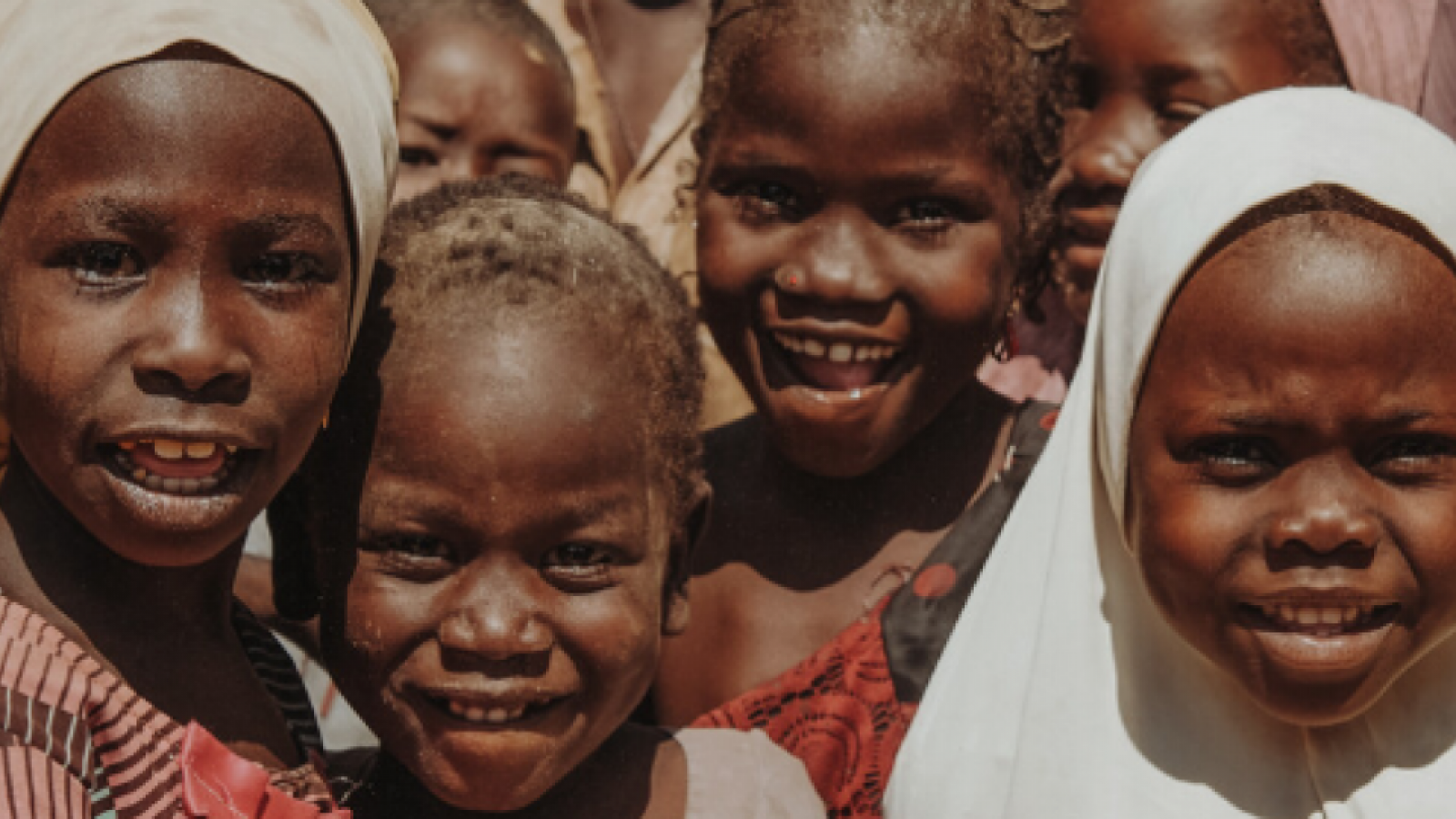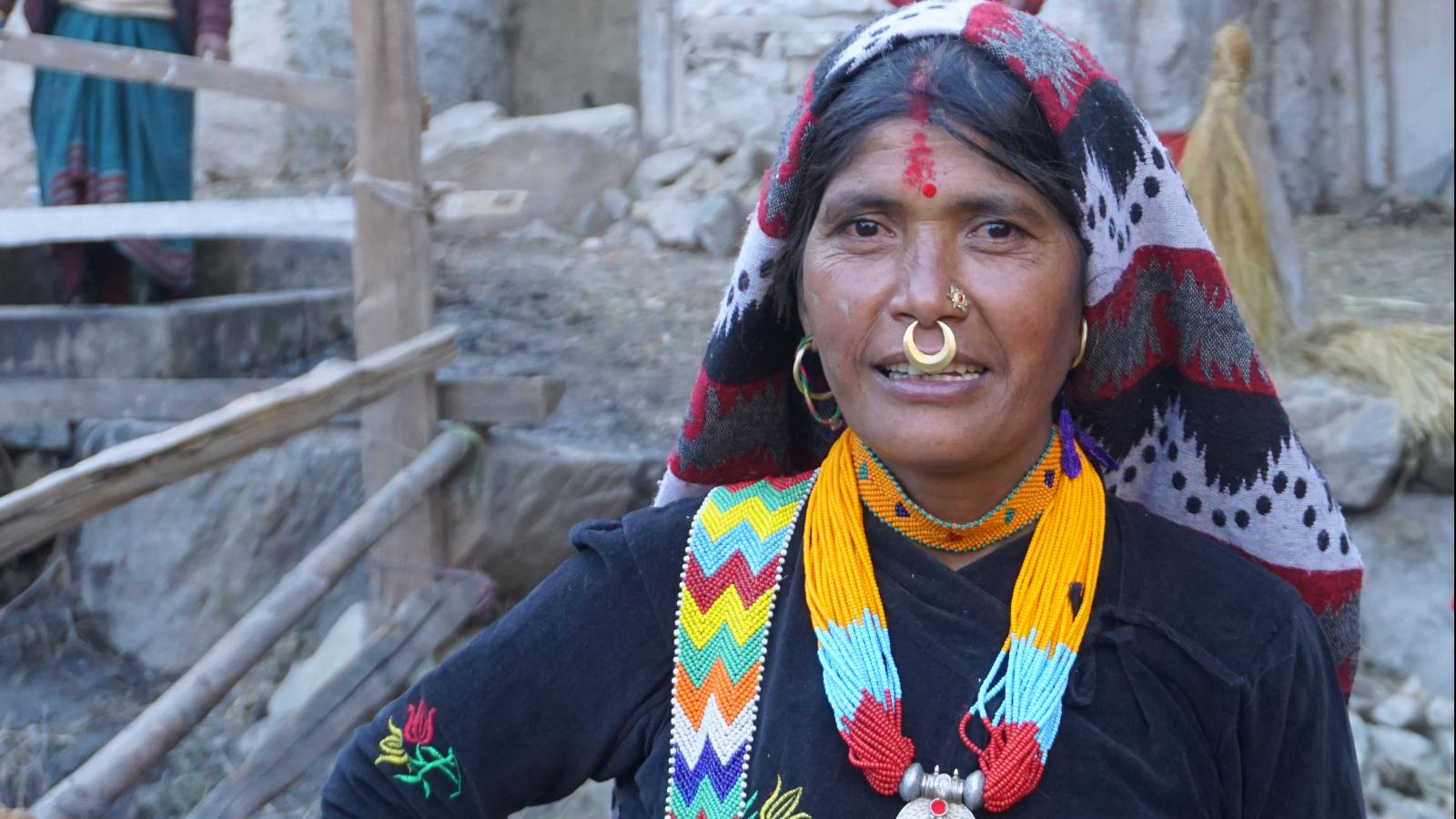Violence against women is a taboo in Iraq. Now the women are responding by paintings at one of Mission East’s civic centers in Sinjar, Iraq.
“In our culture, women are expected to remain silent when it comes to violence, whether the violence is domestic violence, rape or assault by a stranger. But silence cannot heal wounds or solve the problem.”
The quote comes from one of the vulnerable women who comes to one of Mission East’s civic centers in Sinjar. Here she has participated in the art project “Break the Silence”, which is part of the UN’s international 16-day campaign aimed at gender-based violence.
Gender-based violence
The result is more than 20 expressive works of art, which depict the various forms of gender-based violence and their negative consequences.
The project is just one of a series of initiatives that aim to relieve the local women mentally, so that they can achieve increased mental well-being in an everyday life that is characterized by stress and trauma.
Many of the women are still haunted by trauma following the extreme violence they experienced during ISIS ‘bloody attack on Sinjar in 2014.
The shadow pandemic
In addition to the existing trauma of women, domestic violence is a major problem in Iraq. Worldwide, WHO estimates that 35 percent of all women have experienced physical and / or sexual violence at some point in their lives – and there are indications that the problem has only grown here during the corona pandemic.
New UN data and front-line reports have shown that all forms of violence against women and girls, especially domestic violence, have worsened during the pandemic. The UN calls it the “shadow pandemic.”
In need of assistance
There is a dire need for Mission East staff to fill, staff who are available with practical help and guidance for those women who have been or are still being subjected to domestic violence. At the centers, women can get help with protection, psychosocial support and legal assistance. Mission East also works continuously to raise awareness about gender-based violence in the local community.
The initiatives range from physical and mental training, therapeutic conversations, drawing and painting to music lessons.
In addition, women have the opportunity to acquire basic arithmetic and reading skills, so they are better equipped to act independently both inside and outside the home.

